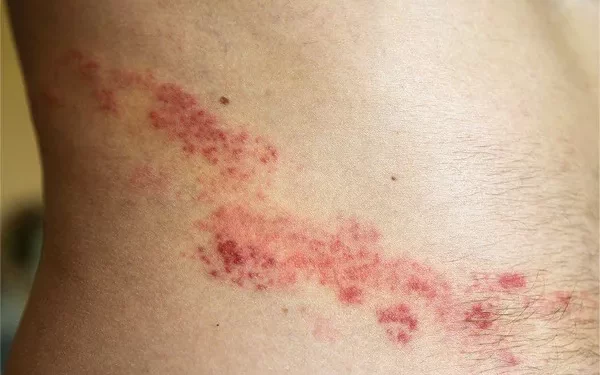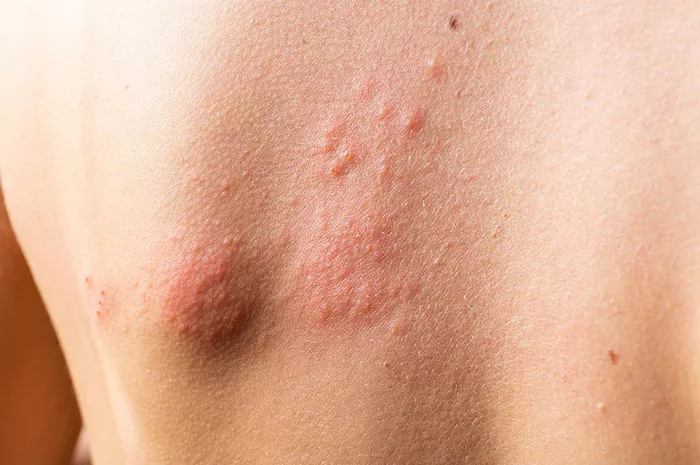Shingles is a viral infection caused by the reactivation of the varicella-zoster virus, the same virus responsible for chickenpox. Understanding its implications for pregnant women is vital, as it can affect both the mother and the baby.
What is Shingles?
Understanding the Virus
Shingles, or herpes zoster, occurs when the dormant varicella-zoster virus becomes active again. This can happen after a person has had chickenpox, even decades later. It is more common in older adults and those with weakened immune systems, but anyone who has had chickenpox can develop shingles.
Symptoms of Shingles
Shingles symptoms typically develop in stages:
Prodromal Stage:
- This stage can occur a few days before the rash appears.
- Symptoms may include localized pain, itching, or tingling in a specific area.
- Some people may experience flu-like symptoms, such as headache, fever, or fatigue.
Rash Development:
- After 2-3 days, a red rash appears, usually on one side of the body or face.
- The rash progresses to small, fluid-filled blisters.
- These blisters may burst, ooze, and then crust over within a week.
Healing Process:
- The rash typically heals within 2-4 weeks but can leave behind scars or change in skin pigmentation.
Risks of Shingles During Pregnancy
Infection Risks for the Mother
For pregnant women, shingles is typically not dangerous if they have had chickenpox before. However, if a woman has never had chickenpox or the varicella vaccine, she could contract chickenpox from someone with shingles.
Potential Risks to the Baby
If a pregnant woman contracts chickenpox, it can lead to several serious complications:
Congenital Varicella Syndrome (CVS):
- This rare condition occurs when a mother contracts chickenpox during the first trimester.
- Potential outcomes include limb abnormalities, eye problems, and neurological issues in the baby.
Low Birth Weight: Babies born to mothers with chickenpox may have a lower birth weight.
Neonatal Varicella: If a mother develops chickenpox 5 days before to 2 days after delivery, the baby is at risk of neonatal varicella, which can be life-threatening.
When is Shingles Most Dangerous During Pregnancy?
The first and second trimesters are particularly critical. During these stages, the baby is developing vital organs and systems, making them more susceptible to the effects of viral infections.
Preventing Shingles and Chickenpox During Pregnancy
Vaccination
Vaccination is the most effective way to prevent shingles and chickenpox:
Varicella Vaccine:
- Women of childbearing age should receive the varicella vaccine if they have never had chickenpox.
- It’s crucial to wait at least one month after vaccination before trying to conceive.
Shingles Vaccine: The shingles vaccine is recommended for adults over 50 but is not recommended during pregnancy.
Avoiding Exposure
To minimize the risk of infection, pregnant women should take the following precautions:
Limit Contact:
- Avoid close contact with individuals who have shingles or chickenpox.
- Ensure that everyone in the household is vaccinated against chickenpox.
Monitor Symptoms: Be vigilant about symptoms in yourself and others.
What to Do if You Contract Shingles During Pregnancy
Consult Your Healthcare Provider
If you suspect you have shingles, reach out to your healthcare provider immediately. Early diagnosis and treatment can help manage symptoms and minimize risks.
Treatment Options
While shingles cannot be cured, treatment can help alleviate symptoms and speed recovery:
Antiviral Medications: Medications such as acyclovir, valacyclovir, or famciclovir can help reduce the severity and duration of shingles if taken early in the infection.
Pain Relief: Over-the-counter pain relievers like acetaminophen or ibuprofen can help manage pain and discomfort.
Topical Treatments: Calamine lotion, oatmeal baths, and cool compresses can soothe the rash and relieve itching.
Rest and Self-Care: Ensure adequate rest and hydration to support the immune system.
Living with Shingles During Pregnancy
Coping with shingles during pregnancy can be challenging. Here are some tips for managing your health:
Prioritize Rest: Sleep is crucial for recovery. Create a comfortable sleep environment.
Stay Hydrated: Drink plenty of water and fluids to prevent dehydration.
Nutrition: A balanced diet rich in vitamins and minerals can support immune function. Focus on fruits, vegetables, whole grains, and lean proteins.
Monitoring Your Baby’s Health
After recovering from shingles, it’s important to monitor your baby’s health:
Regular Check-Ups: Attend all prenatal appointments to ensure the baby is developing normally.
Discuss Concerns: If you have any concerns about your baby’s health or development, discuss them with your healthcare provider.
When to Seek Immediate Medical Attention
Some signs may indicate the need for urgent medical care:
Severe Pain: If the pain is unmanageable or worsening, seek help.
High Fever: A persistent high fever that does not respond to medication should be evaluated.
Rash Spreading: Rapidly spreading rash or other concerning symptoms warrant immediate medical attention.
Conclusion
Shingles can present challenges during pregnancy, primarily if it leads to chickenpox. However, with appropriate precautions and timely medical attention, the risks can be minimized. If you have concerns about shingles or your health during pregnancy, consult your healthcare provider for guidance. Staying informed and proactive is essential for a healthy pregnancy and a healthy baby. Remember, knowledge is your best defense against potential complications.
Related topics:



























